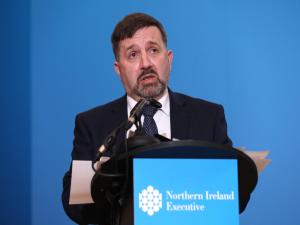
By Q Radio News
The Health Minister says more restrictions will be needed between now and Christmas to get the health service through this winter.
Robin Swann is expected to bring a number of options and initiatives to the Executive later today, in what he said will help achieve a better Christmas season.
The meeting comes ahead of the partial reopening of the hospitality tomorrow, following days of heated discussions between Ministers last week.
Mr Swann said the biggest threat to the economy is not restrictions, it's the virus.
He also held discussions with Health Secretary Matt Hancock about securing some mass tests for Northern Ireland.
He said: “Even a project like that would take time to initiate.”
He added there was an opportunity to make testing available to a greater population.
“It would be a large logistical challenge to try and achieve that,” he said.
Meahwhile, Professor Ian Young, Stormont’s chief scientific adviser, has also addressed a public briefing in which he said following the imposition of recent restrictions, the virus R rate had fallen to 0.8 for two weeks and was now close to one.
He said: “The reduction in cases and in particular hospital bed occupancy is less than we had hoped for.”
Dr Michael McBride, chief medical officer, said lives and livelihoods had been transformed by the epidemic.
He said: “The current restrictions are having an impact.
“R is slowing, the spread of infection, however not enough nor sufficient to get us through the challenges of the next few months.”
He said there was a real prospect of being in a different place by next spring or summer due to vaccine development and rapid testing being pursued.
He added they were considering mass testing of students to help everyone come home for Christmas.
Professor Ian Young said mass testing was an exciting prospect but sought to strike a realistic note.
He added 90% of the population would need to be tested repeatedly for it to be effective in suppressing the virus.
Around 30% of tests would not pick it up due to timing of the test and its sensitivity.
Pilot projects are taking place.
Professor Young said: “It is important to be aware of the limitations of the approach.”
Dr Michael McBride said the new tests could help healthcare workers avoid bringing the infection into their workplace.
“We have no poverty of ambition about the new technologies, about their role and place.
“We need to be sure of their place and what works best.”
He added further validation was needed.
Dr Young said all the tests had potential to give a false reading but conclusive evidence existed that the number was very small when used appropriately on those with symptoms.
The chief scientific adviser added: “If you are applying testing in a population who are completely healthy and they have no symptoms there will be rather more.”
Robin Swann has been subjected to online threats, but said he had not taken up additional security.
He added it would send out the wrong signal in the midst of a pandemic.


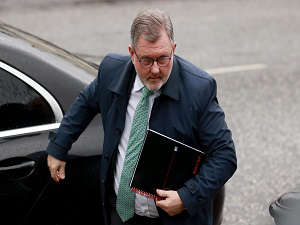 Application to dismiss two charges facing Eleanor Donaldson heard in court
Application to dismiss two charges facing Eleanor Donaldson heard in court
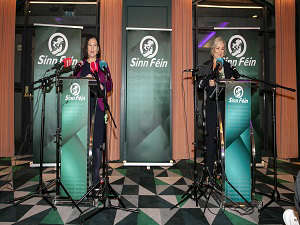 Sinn Fein leadership rules out White House visit
Sinn Fein leadership rules out White House visit
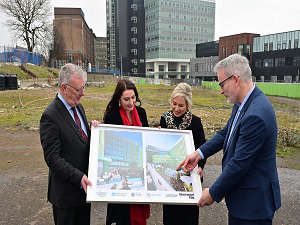 Work to begin on delayed £671 million children’s hospital in Belfast
Work to begin on delayed £671 million children’s hospital in Belfast
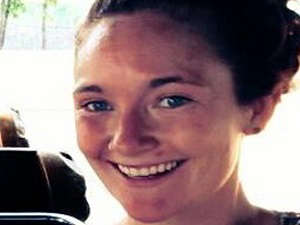 Man convicted of murder and rape of Irish backpacker Danielle McLaughlin in Goa
Man convicted of murder and rape of Irish backpacker Danielle McLaughlin in Goa
 Gardai and PSNI issue appeal about fatal crash in Donegal
Gardai and PSNI issue appeal about fatal crash in Donegal